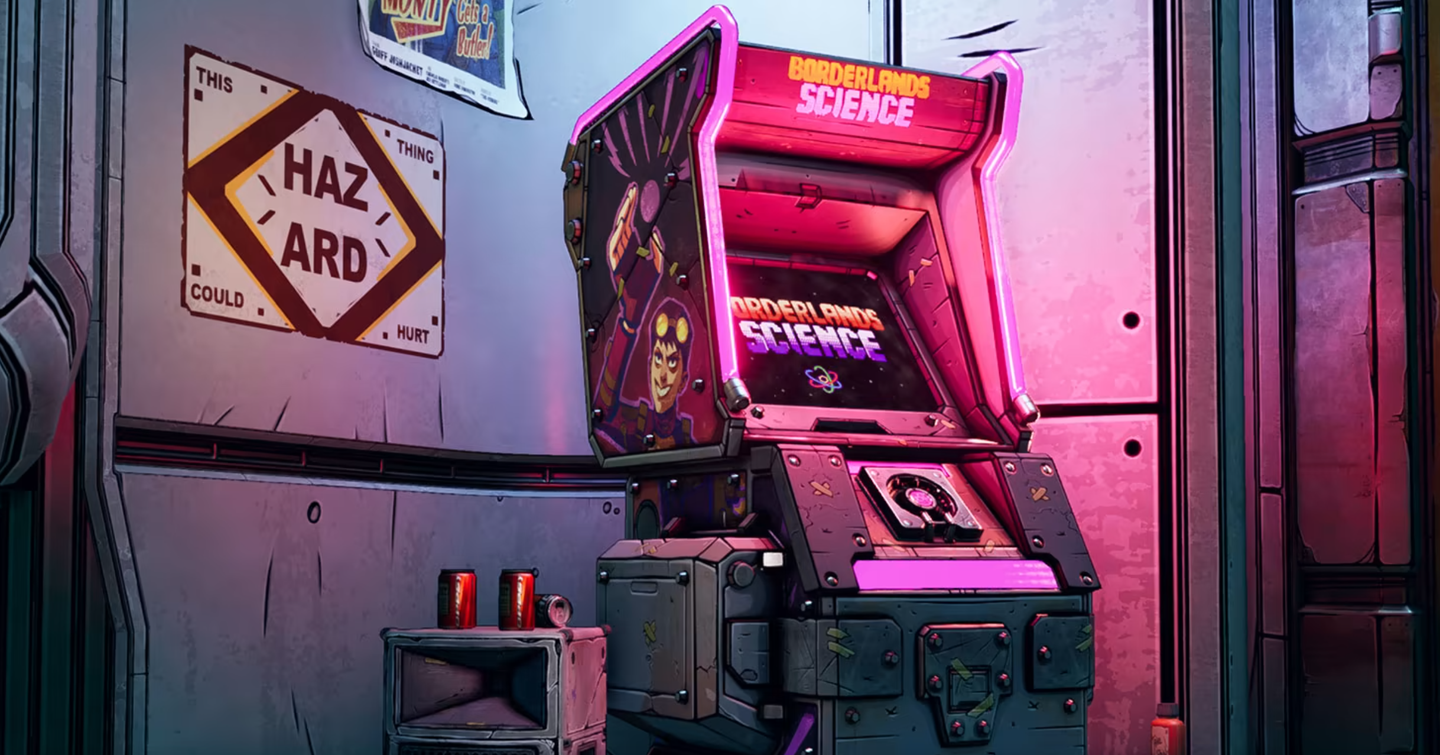Millions of gamers are advancing biomedical research through gameplay
Researchers reveal how the collaborative effort of gamers worldwide, facilitated by innovative video game technology

By playing Borderlands Science, a mini-game within the looter-shooter video game Borderlands 3, 4.5 million gamers have helped trace the evolutionary relationships of more than a million different kinds of bacteria that live in the human gut. (CREDIT: Gearbox)
In a groundbreaking study released today in Nature Biotechnology, researchers reveal how the collaborative effort of gamers worldwide, facilitated by innovative video game technology, has revolutionized scientific understanding.
Through Borderlands Science, a mini-game embedded within the popular video game Borderlands 3, 4.5 million gamers have significantly advanced medical science by reconstructing microbial evolutionary histories.
This collective effort has not only refined our understanding of the human gut microbiome but has also contributed to the enhancement of AI programs crucial for future research endeavors.
The BLS game. Players are tasked with aligning the colored bricks, representing nucleobases, to the guides on the left, by inserting yellow gap bricks. They receive a bonus for full rows and must reach the par score to progress to the next puzzle. (CREDIT: Nature Biotechnology)
The project, spearheaded by McGill University researchers in partnership with Gearbox Entertainment Company and Massively Multiplayer Online Science (MMOS), marks a pivotal moment in citizen science engagement. By aligning genetic building blocks of various microbes in the game, players have tackled tasks that surpass the capabilities of existing computer algorithms. This collaboration has yielded an unprecedented volume of data, providing an exponential increase in our knowledge of the microbiome.
Jérôme Waldispühl, an associate professor at McGill's School of Computer Science and senior author of the study, expressed astonishment at the results: "In half a day, the Borderlands Science players collected five times more data about microbial DNA sequences than our earlier game, Phylo, had collected over a 10-year period."
This achievement underscores the untapped potential of harnessing the gaming community's cognitive prowess for scientific exploration.
Related Stories
Attila Szantner, CEO of MMOS and adjunct professor at McGill, emphasized the importance of leveraging the vast gaming population for meaningful contributions to research: "As almost half of the world population is playing with video games, it is of utmost importance that we find new creative ways to extract value from all this time and brainpower."
Szantner's vision for Borderlands Science exemplifies the symbiotic relationship between the gaming industry and scientific advancement.
Randy Pitchford, founder and CEO of Gearbox Entertainment Company, lauded the collaboration's success in engaging millions of Borderlands players: "Borderlands Science has become one of the largest and most accomplished citizen science projects of all time, forecasting the opportunity for similar projects in future video games." Pitchford's remarks highlight the transformative potential of integrating scientific endeavors into mainstream entertainment platforms.
Agreement with 16S rRNA structural model. After mapping the BLS and PASTA alignments to the 16S structural model, we observed a higher conservation for BLS, especially near important functional sites. (CREDIT: Nature Biotechnology)
The significance of this research extends beyond the gaming community, with implications for understanding human health and disease. Microbial communities within the body play a vital role in maintaining health, yet identifying their interactions with various factors remains a complex challenge.
Rob Knight, leader of the Microsetta Initiative at UC San Diego, emphasized the project's potential impact: "We expect to be able to use this information to relate specific kinds of microbes to what we eat, to how we age, and to the many diseases ranging from inflammatory bowel disease to Alzheimer’s."
Moreover, this collaborative effort underscores the power of community-driven science in advancing knowledge and combating misconceptions. Waldispühl highlighted the role of Borderlands Science in fostering a sense of collective achievement: "Here we have 4.5 million people who contributed to science. In a sense, this result is theirs too and they should feel proud about it."
By engaging citizens in scientific endeavors, initiatives like Borderlands Science promote inclusivity and democratize access to knowledge.
Daniel McDonald, Scientific Director of the Microsetta Initiative, emphasized the transformative potential of open-access data and inclusive scientific practices: "These results demonstrate the remarkable value of open access data, and the scale of what is possible with inclusive practices in scientific endeavors."
The success of Borderlands Science serves as a testament to the power of collaboration in driving scientific innovation forward.
The integration of gaming technology with scientific research represents a paradigm shift in citizen science engagement. Through Borderlands Science, millions of gamers have contributed to groundbreaking discoveries in microbial evolution, paving the way for a deeper understanding of human health and disease.
This collaborative effort exemplifies the potential of harnessing collective intelligence for the betterment of society and underscores the importance of inclusive scientific practices in advancing knowledge
For more science news stories check out our New Innovations section at The Brighter Side of News.
Note: Materials provided above by The Brighter Side of News. Content may be edited for style and length.
Like these kind of feel good stories? Get the Brighter Side of News' newsletter.
Joshua Shavit
Science & Technology Writer | AI and Robotics Reporter
Joshua Shavit is a Los Angeles-based science and technology writer with a passion for exploring the breakthroughs shaping the future. As a contributor to The Brighter Side of News, he focuses on positive and transformative advancements in AI, technology, physics, engineering, robotics and space science. Joshua is currently working towards a Bachelor of Science in Business Administration at the University of California, Berkeley. He combines his academic background with a talent for storytelling, making complex scientific discoveries engaging and accessible. His work highlights the innovators behind the ideas, bringing readers closer to the people driving progress.



